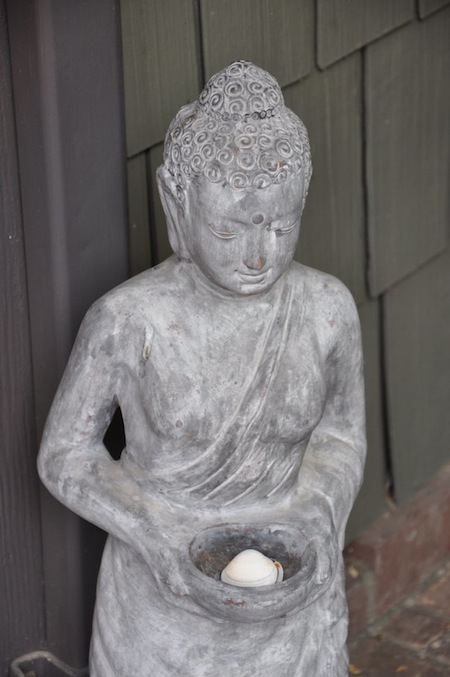You can leave this site quickly.
Learn more about Internet safety.
Self-Care for Trying Times or Triggering Experiences
The effects of trauma in the mind, body and spirit are complex and can bring up different trauma reminders that are unique to us. That is, our responses to trauma can vary by individual.
In general, when we interact with our environment, it can awaken memories of a past experience—your own or a loved one’s—that can affect us in the moment. We would like to provide you with resources that can support you at this time and in your broader healing process.
 Begin by checking-in with yourself. Do an analysis of how your mind and body feel—what emotions are you feeling? Are you experiencing thoughts or memories related to your own or a loved one’s trauma? Are you feeling tension in your body or are you holding your breath? Common bodily responses to trauma include tension, fear, anger, sadness and maybe even feeling unsafe. Remind yourself that what you are experiencing is a common response to your own experience of a traumatic event. If you are feeling in any way unsafe, create a safety plan such as calling a friend or talking to your therapist if you have one. Having a good source of support can make a difference in your healing process.
Begin by checking-in with yourself. Do an analysis of how your mind and body feel—what emotions are you feeling? Are you experiencing thoughts or memories related to your own or a loved one’s trauma? Are you feeling tension in your body or are you holding your breath? Common bodily responses to trauma include tension, fear, anger, sadness and maybe even feeling unsafe. Remind yourself that what you are experiencing is a common response to your own experience of a traumatic event. If you are feeling in any way unsafe, create a safety plan such as calling a friend or talking to your therapist if you have one. Having a good source of support can make a difference in your healing process.
If you or someone you know needs help, please contact:
Rape, Abuse and Incest National Network at
1 (800) 656-4673 / www.rainn.org
or National Domestic Violence Hotline at
1 (800) 799-7233 / www.ndvh.org
or National Teen Dating Abuse Helpline at
1 (866) 331-9474 / www.loveisrespect.org
or National Suicide Prevention Lifeline at
1 (800) 273-8255 / www.suicidepreventionlifeline.org
If you are in immediate danger, please call 911.
Allow your feelings to exist and be gentle with yourself as you process them. It is common for us to feel shame or guilt for feeling a certain way or for having a certain response, such as crying. As you allow your feelings to surface, it can be easier to cope with them.
Pace Exposure
Respectfully acknowledge what is happening around you, then allow yourself respite from the information. The events we see may bring up ties to our own losses and worries for our future. Give yourself time away from focusing on the event to pace yourself with this process.
Nurture Yourself
Stress can be a result of the intake of high levels of information. This information needs time to energetically leave our bodies, in the form of relaxation or exercise. You may want to
- Take a long bath
- Get out in nature
- Listen to soothing music
- Exercise
- Connect with your spiritual practice
- Connect with others
- Make the time to do what you know makes you feel better
There are other creative and helpful ways of addressing your thoughts and feelings about this situation such as talking, journaling, drawing or making a collage. These coping strategies can be helpful in creating insight about your own traumatic experience and healing path. Additionally, creating daily practices that involve exercise, relaxation or breathing exercises can help you release tension from your mind and body and reduce stress.
Care for Your Body
There is a physical toll on your body that comes from processing excessive amounts of emotional information and/or experiences. To help balance this, take extra care of yourself in the aftermath of receiving stressful information. You may want to - Breathe deeply for 3 minutes. Eat foods filled with nutrients. Drink water and avoid foods that are stressful on your immune system like processed sugars. Listen to what your body truly needs and respond with compassion.
Find an Outlet
We may find ourselves wanting to take action in response to a trauma. Sometimes, this is our intuition looking for a healthy outlet for emotions to surface and exit our bodies. Our bodies often inherently respond to trauma or injustice with a desire to protect ourself or others. This is a normal, biologically based need to contribute to a solution. It may be helpful to have a response that incorporates movement to support our bodies in moving through this experience - from rallying in protest with others in community, writing an editorial or letter in your community to any physical activity that appeals to us. Listen to your body and respect its desire to help.
The coping tools described above are just a few ideas that can assist you in developing your own healing practices. If you’d like to explore even more possible approaches, here are some additional articles that might be of use:
- Explore your journey by creating a story (from Reunion 4).
- Give meditation a chance.
- Unlock your creative potential. Check out the blog and our featured modality on creative expression (from Reunion Issue No. 3).
- Create a lasting, peaceful home retreat.
Of course, you know yourself best, so if you don’t see something that feels like it would be helpful, we invite you to explore a different idea at your own pace. Take the time to practice some of these strategies and find the ones that work for you as only you know what will be most helpful.




Your Voices